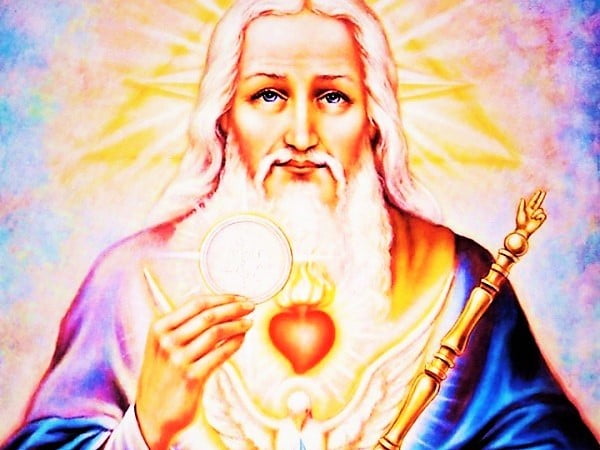
The main external act of the virtue of religion is sacrifice. Ever since Christ died on the Cross for us, our worship should be offered to God through Jesus Christ, the firstborn among many brethren. Only through Jesus Christ, the Head of the Mystical Body, will we give due worship to God, the Father. As St. Josemaria wrote:
The three divine Persons act together in the holy Sacrifice of the Altar. This is why I like to repeat the final words of the collect, secret and postcommunion: “Through Jesus Christ, your Son, our Lord,” we pray to God the Father, “who lives and reigns with you in the unity of the Holy Spirit, one God, for ever and ever. Amen.”
In the Mass, our prayer to God the Father is constant. The priest represents the eternal high Priest, Jesus Christ, who is, at the same time, the victim offered in this sacrifice. And the action of the Holy Spirit in the Mass is truly present, although in a mysterious manner.
Citing St. John Damascene, St. Josemaria wrote: “‘By the power of the Holy Spirit, the transformation of the bread into the body of Christ takes place,’ and continues: The three divine Persons are present in the Sacrifice of the Altar. By the will of the Father, with the cooperation of the Holy Spirit, the Son offers himself in a redemptive sacrifice. We learn how to personalize our relationship with the most Blessed Trinity, one God in three Persons: three divine Persons in the unity of God’s substance, in the unity of his love and of his sanctifying action.
In the name of the Church, the priest offers Christ as an immolated Victim, to acknowledge God’s dominion and majesty, to thank him for all we have received, to implore new graces, and to atone for the sins of all people. And we, united to the Sacrifice of the Mass, offer to God all that we have and are, and we strive to make all our works into spiritual sacrifices acceptable to God through Jesus Christ.
The Mass is, I insist, an action of God, of the Trinity. It is not a merely human event. The priest who celebrates fulfils the desire of our Lord, lending his body and his voice to the divine action. He acts, not in his own name, but in persona et in nomine Christi: in the Person of Christ and in his name.
Because of the Blessed Trinity’s love for man, the presence of Christ in the Eucharist brings all graces to the Church and to mankind. This is the sacrifice announced by the prophet Malachy: From the rising of the sun to its setting my name is great among the nations, and a fragrant sacrifice and a pure offering is made to me in all places. It is the sacrifice of Christ, offered to the Father with the cooperation of the Holy Spirit – an offering of infinite value, which perpetuates the work of the redemption in us and surpasses the sacrifices of the old law.